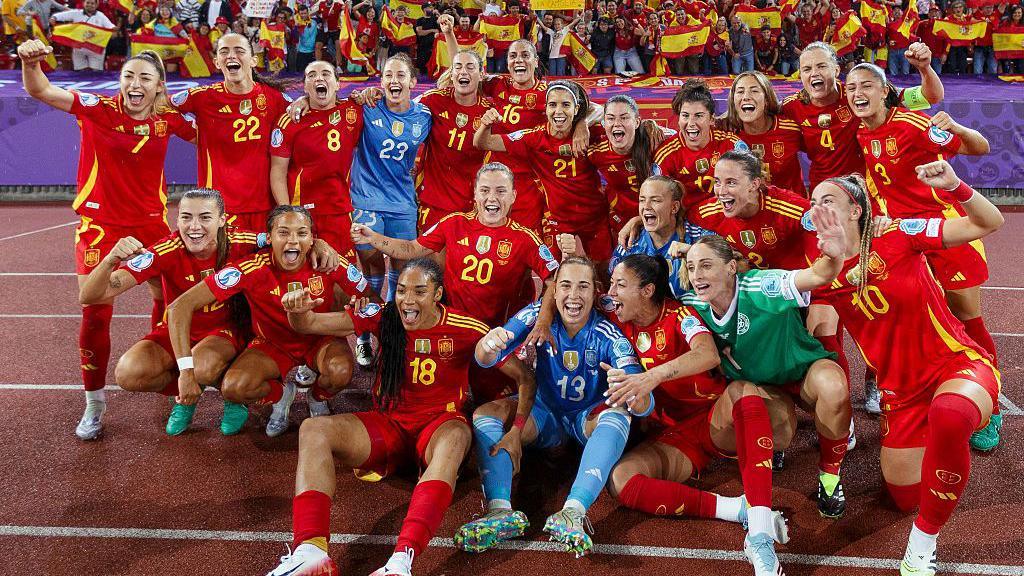Aitana Bonmatí’s remarkable journey from the hospital bed to hero status is one that could indeed fill a book, as the talented midfielder herself mentioned after an extraordinary performance in the Euro 2025 semi-final. Following Spain’s thrilling victory over Germany in extra time, securing their first spot in a Women’s Euro final, Bonmatí expressed her thoughts on the emotional rollercoaster she experienced throughout the tournament. Just days before the competition began, she was discharged from hospital after battling viral meningitis, a setback that almost kept her from participating in the prestigious event.
Initially sidelined during Spain’s opening two matches, Bonmatí had to wait for her opportunity, yet she seized it brilliantly when it eventually arrived. Now 27 years old and a two-time winner of the Ballon d’Or, her skill was on full display as she cut between defenders and launched a shot past German goalkeeper Ann-Katrin Berger, ensuring Spain’s place in the final against England. Her journey from adversity to triumph exemplifies the resilience and determination that characterize elite athletes and undoubtedly makes her success story resonate with fans worldwide.
In the aftermath of the match, Bonmatí reflected on how it felt to be back on the pitch contributing to her team’s success. Commenting on her semi-final winner, she highlighted the significance of scoring in such crucial moments, stating, “Scoring in a game like this one is super-special. If I can help the team write history, it’s very special.” This statement underscores her understanding both of the moment’s importance and her responsibility as a leading figure for Spain.
While Bonmatí’s goal was pivotal in the match, Spain’s performance prior to her decisive strike involved grappling with a stubborn German defense. The Spanish team struggled to convert their possession into goals, facing a resilient opponent willing to endure extra time in hopes of forcing penalties. Across eight prior encounters with Germany, Spain had never come out on top, losing four of those without scoring. Thus, the breakthrough was historic not just for Bonmatí, but for the entire team.
Montse Tome, the Spain manager, praised Bonmatí’s resolve and mental fortitude during the tournament, emphasizing her return to full form despite the earlier health challenges. Her ability to navigate the pressure and convert chances when they mattered most has been a hallmark of her career. Former players and commentators expressed that her talent and tenacity are what set Bonmatí—and indeed any Ballon d’Or winner—apart in critical moments.
Bonmatí’s emotional celebration after scoring was another highlight. Surrounded by her teammates and coaches, the elation of reaching the final encapsulated months of hard work and dedication. “When the ball was in, I started running and I saw the bench standing so I celebrated with them,” she recalled, emphasizing the bond forged within the squad.
With Spain now on the cusp of possibly adding a European title to their World Cup victory from 2023, Bonmatí’s confident mentality and physical preparedness will play a crucial role against formidable opposition. She expressed eagerness to shift focus on the final, stating, “Today we can enjoy. Tomorrow we have to start thinking of England.” The anticipation for this encounter along with her leadership will undoubtedly inspire her teammates as they aim to secure a historic double.
As this chapter unfolds in Spain’s football narrative, the combined stories of resilience, skill, and teamwork spotlights the dynamism within women’s football today. Triumphs such as Bonmatí’s underscore not only the evolution of the sport but also the growing recognition of its stars, offering profound inspiration to future generations of athletes.












